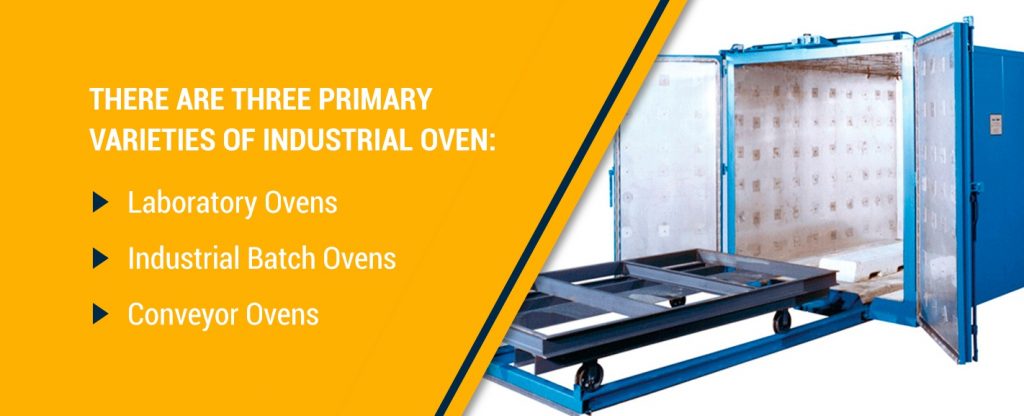Breakdown of Industrial Process Ovens

Breakdown of Industrial Process Ovens
Updated: December 22, 2023 Regardless of the end product, manufacturing involves multiple carefully organized steps to produce goods with consistent quality. Many of these steps require heat application, making industrial process ovens an essential part of the production line. These ovens are designed to deliver controlled heating for various purposes such as curing, drying, aging, and more. Choosing the right oven for your needs can significantly enhance your manufacturing efficiency and output quality. To find the best industrial ovens for your business, it's important to understand what features matter most. Factors like temperature accuracy, airflow design, fuel source, and material handling capabilities all influence performance. This guide will walk you through the basics of industrial ovens, their types, and how they function. Contact UsWhat Is an Industrial Oven?
Industrial ovens are specialized chambers used to heat objects to high temperatures, often similar to kilns. They come in various designs and can be used for small or large-scale production. These ovens are commonly used in processes such as curing, moisture removal, and material aging. Industries like electronics, food processing, and chemical manufacturing rely heavily on them. The two main factors that define an industrial oven are its heat source and airflow system. Heat can be generated using electricity, gas, steam, water, or oil. The airflow pattern is also critical, as it affects how evenly heat is distributed throughout the oven. Common airflow configurations include horizontal/vertical, vertical/top-down, full horizontal, and others. When selecting an oven, consider factors like temperature control, material compatibility, safety standards, and cost-effectiveness. A well-chosen oven can improve productivity and reduce waste in your workflow.Are There Different Types?
With so many manufacturing processes requiring heat treatment, there are several types of industrial ovens available. Each type is suited for specific applications, and choosing the right one is key to achieving optimal results. Here are the three primary types:Laboratory Ovens
Laboratory ovens are ideal for scientific and small-scale production environments. They are used in chemistry, research, and testing applications. Features often include stainless steel interiors, chemical-resistant coatings, digital controllers, and pressure release panels. Their temperature ranges typically go from ambient up to around 650°F, and they come in sizes ranging from 2 to 32 cubic feet.
Industrial Batch Ovens
For larger-scale operations, industrial batch ovens are a popular choice. These ovens allow for the heating of large volumes of materials in single batches. They come in two main styles: shelf (cabinet) ovens and truck (walk-in) ovens. Batch ovens are known for their versatility, with operating temperatures reaching up to 1,250°F. They often feature adjustable ductwork, durable interiors, and advanced control systems.Conveyor Ovens
Conveyor ovens are designed for continuous or semi-continuous production lines. While they may offer less flexibility than batch ovens, they excel in high-volume settings where products need to be processed at a steady rate. These ovens typically have multiple heat zones and can operate either continuously or on an indexing basis. They are commonly used in automated production environments.What’s the Process of Industrial Ovens?
Using an industrial oven effectively requires careful planning and execution. Here are the four main steps involved in the process:- Loading your batch: Before starting, ensure the load is properly prepared. Consider the heat required to reach the desired temperature, as well as losses from the exhaust system.
- Heating the oven: Set the desired temperature using a set-point controller or a programmable ramp and soak system to achieve precise heating.
- Regulating temperature: Monitor the temperature closely to maintain consistency. Soak times and thermocouples are useful tools for this step.
- Cooling down: After the process is complete, cool the oven properly. This can be done manually or through an automated cooling program.
Contact Finishing Systems
When you need a reliable industrial furnace, Finishing Systems is here to help. With over 45 years of experience, we specialize in metal finishing solutions for construction equipment and vehicle manufacturing. Our team provides custom-designed systems, expert support, and a wide range of high-quality products to meet your specific needs. Improve your finishing process today by contacting Finishing Systems. Let us help you find the perfect solution for your business. Contact Us TodayChina high end finned evaporator, source factory, competitive price,Direct Sales Refrigeration Copper Fin,Tube Fin Aluminum Refrigerator Evaporator Coil,Fin-And-Tube Evaporator Details Customizable
Our company has always had strict quality control standards in the market of refrigeration and heat exchange equipment, focusing on providing customised services to our customers. Not only do we have high requirements for the selection of raw materials, but we also keep up to date with the latest production processes and have high testing standards.
Our company mainly produces products for:Fin Evaporator.Fin Type Condenser.Capillary Tube. Coolant Reservoir.Plate Reinforcement Parts.Stamped Parts.Aluminum Tube.Instrument Testing Equipment.
If you have any interest, please feel free to contact us. We can provide customized service according to your drawings or samples.
Fin Evaporator,Finned Tube Radiator,Microchannel Fin Aircooler,Heat Exchanger Evaporator
Xinxiang Yukun Refrigeration Technology Co.Ltd , https://www.yukunevaporator.com